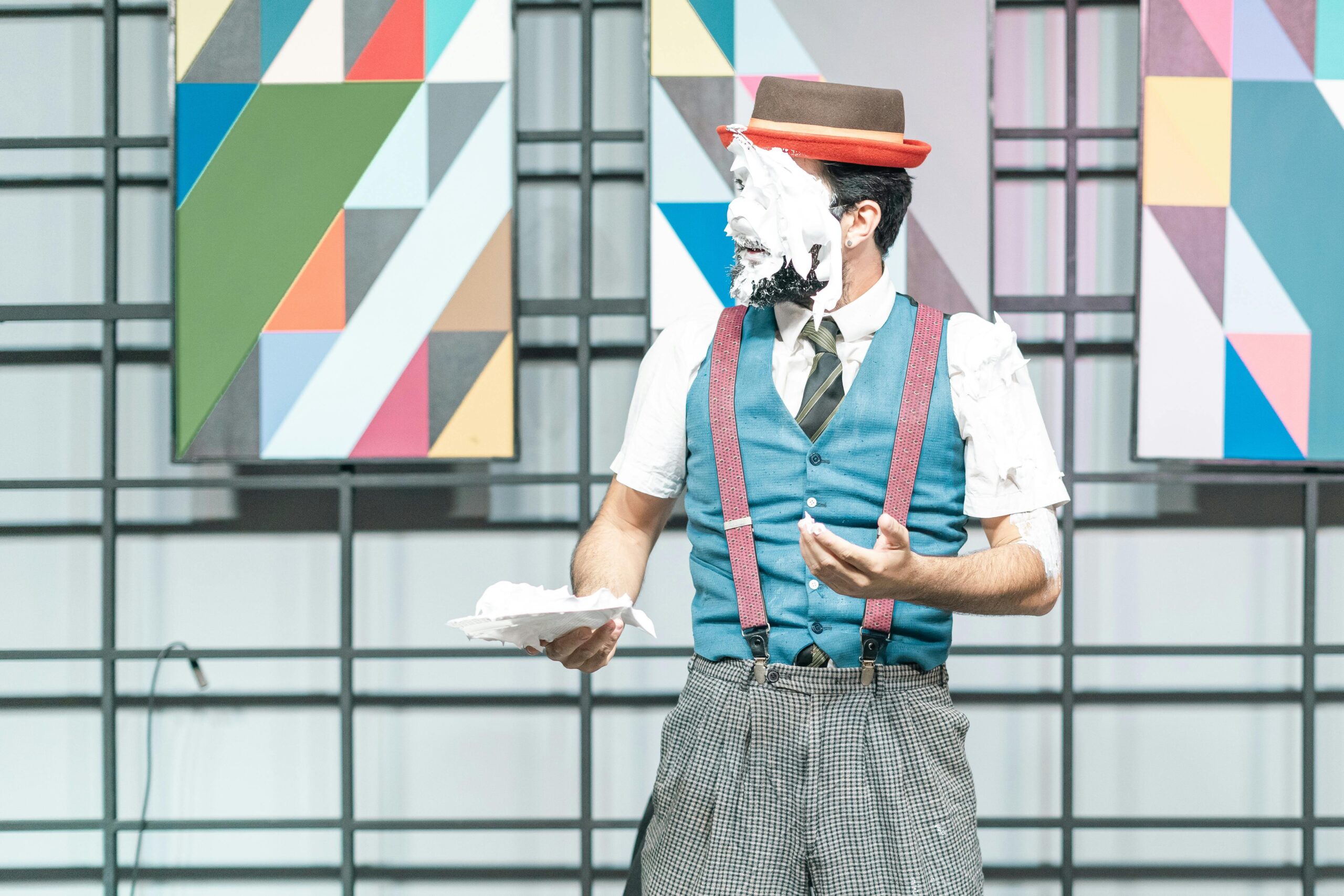
Comedy in the English language
Comedy can be very unique to your culture and your language, in the English language it’s no different. It’s not easy to understand comedy in another language but it’s definitely worth persevering. A good place to start is to think about it as a way to improve your listening. It’s rewarding and great fun when you find a comedian or show you really connect with 🙂
Here we look at different types of humour, the comedians and TV shows you can watch in the UK.
What are the main types of humour?
Dark humour
This form of humour targets sensitive and serious subjects to shock people and make them laugh. In certain contexts it could be considered offensive by some cultures and people.
My grief counsellor died, but he was so good at his job that I don’t even care.
Comedians: Frankie Boyle, Sarah Millican, Jimmy Carr
Shows: The Outlaws (BBC), After Life (Netflix), Fleabag (BBC)
Slapstick
This is about visual gags, often intentionally exaggerated. The very well-known series of Mr. Bean is one of the best examples of this humour.
Comedians: Rik Mayall, Rowan Atkinson, Benny Hill
Shows: Bottom (BBC), Mr.Bean (BBC), ‘Allo ‘Allo! (UK Gold)
Parody
Parody distorts a real situation, a work of fiction or art in order to mock it and make it seem ridiculous. It can also be called satire when the aim is to criticize or expose something.
Popular movies include Austin Powers (character parody of James Bond), Shaun of the Dead (parody of Dawn of the Dead) and Monty Python and the Holy Grail (parody of the Arthurian legends).
Comedians: Mike Myers (Canadian), John Cleese, Simon Pegg
Shows: Blackadder (BBC), Knowing Me Knowing You with Alan Partridge (BBC), Cunk on Britain (BBC)
Puns
These play on similarities between sounds and words. It’s complicated to translate as a humour as it’s specific to a language’s own vocabulary.
After hours of waiting for the bowling alley to open, we finally got the ball rolling.
Comedians: Milton Jones, Tim Vine, Darren Walsh
Shows: Would I Lie to You? (BBC), 8 Out of Ten Cats (Channel 4), Mock the Week (BBC)
Irony
This is all about saying the opposite of what you really think. If you used it as a disguised version of criticism then it’s called sarcasm.
Here are a few examples:
A fire station burns down.
A marriage counsellor files for divorce.
A pilot has a fear of heights.
Comedians: Paul Merton, Mel Smith, Andy Zaltzman
Shows: Have I Got News for You (BBC), The Office (BBC), The Thick of It (BBC)
Absurdity
A form of humour predicated on deliberate violations of causal reasoning, thus producing events and behaviours that are obviously illogical. It can also be called surreal humour.
Comedians: Michael Palin, Noel Fielding, Craig Charles
Shows: Monty Python’s Flying Circus (Netflix), The Mighty Boosh (BBC), Red Dwarf (Dave)
Self-deprecation
The ability to laugh at yourself and your own culture.
A few examples where you laugh at yourself:
I just realized that my life can’t fall apart if I never had it together in the first place.
Not to brag, but I haven’t had a mood swing in, like, 7 minutes.
I’m only posting on social media so everyone else can feel better about themselves. You’re welcome.
Comedians: Stewart Lee, Romesh Ranganathan, James Acaster
Shows: Taskmaster (Dave), The Misadventures of Romesh Ranganathan (BBC), Hypothetical (Dave)
Are there other types of comedy you can see in the English language?
There are many different types of comedy and we have covered just a few above. Here are a few more which are popular:
Improvisational comedy – When I was younger I used to love watching the improvisational comedy show ‘Whose Line Is It Anyway?‘ The actors and comedians are very quick witted and will often have you laughing out loud with some crazy improv.
Innuendo – As a comedy form innuendo is not really used so much nowadays. Chaucer and Shakespeare often used innuendo and in modern times Julian Clary is probably a good example of this. It’s often known for its sexual explicitness which is maybe less popular now due to changes in society.
Embarrassment of social ineptitude – Mr. Bean is a classic example of this but Peep Show and The Office are also very good examples of this type of humour. It became popular in the 2000s and is often used in comedy series today.
